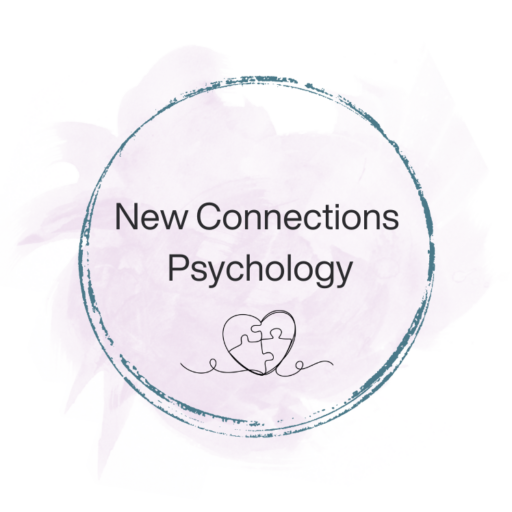Introduction
In today’s fast-paced world, mental health disorders have become increasingly prevalent, affecting millions of people globally. These disorders can have a profound impact on individuals’ lives, making it essential to raise awareness and understanding about them. This blog post aims to provide a detailed exploration of various common mental health disorders, their symptoms, and how they can affect individuals’ daily lives. By delving deeper into these conditions, we can foster greater empathy, reduce stigma, and encourage open conversations about mental health.
Anxiety Disorders
Anxiety disorders are among the most prevalent mental health issues globally, encompassing a range of conditions such as Generalized Anxiety Disorder (GAD), Social Anxiety Disorder, and Panic Disorder. People with GAD often experience excessive worry and fear about various aspects of life, leading to physical symptoms like rapid heartbeat and sweating. Social Anxiety Disorder involves an intense fear of social situations, leading to avoidance behaviour. Panic Disorder, on the other hand, results in sudden and repeated attacks of fear that can trigger severe physical symptoms such as chest pain and dizziness.
Mood Disorders
Mood disorders, including depression and bipolar disorder, significantly impact a person’s emotional state and overall well-being. Major Depressive Disorder (MDD), commonly known as depression, leads to persistent feelings of sadness, hopelessness, and a lack of interest or pleasure in activities. Bipolar disorder involves extreme mood swings, shifting between periods of intense euphoria (mania) and severe depression, affecting a person’s energy levels and ability to function.
Obsessive-Compulsive and Related Disorders
Obsessive-Compulsive Disorder (OCD) is a condition characterized by persistent, unwanted thoughts (obsessions) and repetitive behaviours or mental acts (compulsions). Individuals with OCD often feel compelled to perform rituals to alleviate anxiety caused by their obsessions. Body Dysmorphic Disorder and Hoarding Disorder are also part of this category, reflecting preoccupations with perceived defects in appearance or difficulties discarding possessions, respectively.
Post-Traumatic Stress Disorder (PTSD)
PTSD can develop after a person has been exposed to a traumatic event, such as war, natural disasters, or personal assault. Symptoms include flashbacks, nightmares, severe anxiety, and uncontrollable thoughts about the event. PTSD can significantly impair daily functioning and lead to a range of other mental health issues if left untreated. It’s essential to recognize the signs and seek help for individuals experiencing PTSD to facilitate their healing process.
Eating Disorders
Eating disorders, such as Anorexia Nervosa, Bulimia Nervosa, and Binge-Eating Disorder, revolve around unhealthy attitudes and behaviours related to food, body weight, and shape. Anorexia involves severe food restriction leading to excessive thinness, while Bulimia involves binge eating followed by purging behaviours. Binge-Eating Disorder entails consuming large amounts of food, often in secret, without purging. These disorders can have severe physical and psychological consequences, emphasizing the importance of early intervention and support.
Personality Disorders
Personality disorders encompass a range of conditions that affect a person’s thoughts, behaviours, and interpersonal relationships. Borderline Personality Disorder, Antisocial Personality Disorder, and Narcissistic Personality Disorder are examples of such disorders. Borderline Personality Disorder often leads to unstable relationships, self-image, and emotions. Antisocial Personality Disorder is characterized by a lack of empathy and disregard for others’ rights, while Narcissistic Personality Disorder involves an inflated sense of self-importance and a deep need for excessive attention and admiration.
Getting Help through Counselling
One of the most effective ways to address mental health disorders is through counselling or therapy. Mental health professionals, including psychologists, counsellors, and therapists, are trained to help individuals navigate the challenges associated with various mental health conditions. Counselling provides a safe and confidential space for individuals to express their thoughts, emotions, and concerns without judgment. Therapists employ evidence-based techniques to help clients develop coping strategies, manage symptoms, and improve their overall well-being. Through therapy, individuals can gain valuable insights into their feelings and behaviours, learn to challenge negative thought patterns, and develop healthier ways of coping with stressors.
It’s important to recognize that seeking counselling is a sign of strength, not weakness. Just as we visit doctors for physical ailments, consulting a mental health professional is essential for mental and emotional well-being. Whether it’s cognitive-behavioural therapy (CBT) for anxiety disorders, dialectical behaviour therapy (DBT) for borderline personality disorder, or trauma-focused therapies for PTSD, there are various therapeutic approaches tailored to specific mental health conditions.
Additionally, counselling can be beneficial not only for individuals diagnosed with mental health disorders but also for those experiencing life transitions, relationship issues, grief, or stress. Therapy offers a supportive environment where individuals can learn valuable life skills, improve communication, and enhance their overall quality of life.
If you or someone you know is struggling with mental health challenges, reaching out to a qualified mental health professional can be the first step toward healing and recovery. Many organizations and online platforms offer resources to help individuals connect with therapists who specialize in specific mental health areas. By taking this proactive step, individuals can embark on a journey toward improved mental and emotional well-being, leading to a more fulfilling and balanced life.
Conclusion
Understanding the complexities of different types of mental health disorders is crucial for promoting awareness, empathy, and early intervention. Mental health disorders are not merely a matter of personal weakness or lack of willpower; they are legitimate medical conditions that require comprehensive support and treatment. By fostering a compassionate and informed society, we can reduce stigma, encourage open conversations, and create a supportive environment for individuals facing mental health challenges.
If you or someone you know is struggling with mental health issues, don’t hesitate to seek help from mental health professionals, counsellors, or support networks. Together, we can work towards a world where mental health is prioritized, understood, and respected by all, paving the way for a healthier and more empathetic society.

